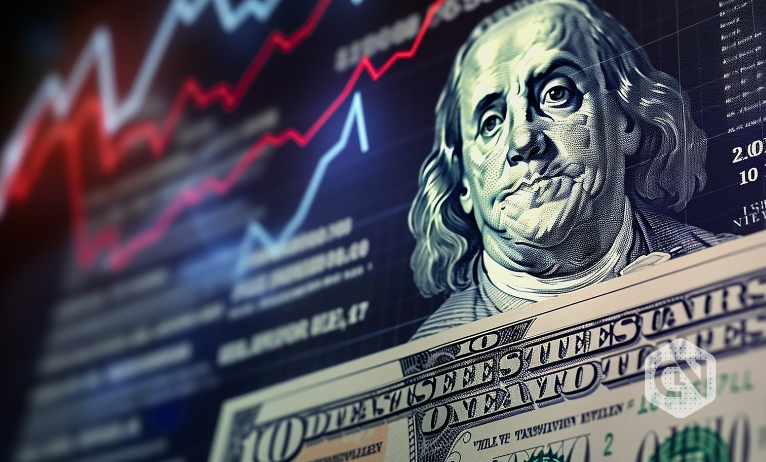This content has been archived. It may no longer be relevant.
The Federal Reserve may not hike rates; however, the US Dollar could potentially continue to struggle in deep waters. Most of this anticipation stems from the fact that countries are agreeing to trade among themselves without involving American native currency. That creates a disbalance between the demand and supply of the dollar. Thereby it affects how it is valued in the market.
Another element that is factored in is inflation. It will take time to come under the secured radar as the Chair of the Fed signals that the rate will stagnate at its high mark for a while. Global Purchasing Managers’ Index data is scheduled to be published, sparking a sense of probable recovery from the said point.
US Economic Data
The US Dollar is dipping. Retail sales were up by 0.3% in November. Jobless claims are better than what analysts had expected. Overall, the US economic data has surpassed everyone’s expectations, with modest support for its own currency.
Industrial Production (MoM) for November is at 0.3%, with the previous figure being -0.6%. Capacity utilization for the same month has reached a consensus of 79.1% against the previous standing of 78.9%. The S&P Global Composite PMI for December will have its consensus soon. Manufacturing and Services PMI are out at 49.3 and 50.6, respectively. The previous marks were 49.4 and 50.8, applicable in the same order.
Advertisement
A trend that could be influencing the market is forthcoming decisions pertaining to Fed rates. They have reportedly reached a deadlock, with no further rise expected. Keeping the rate stagnant is an ideal choice, if not bringing it down.
A downfall would rather free up the capital for more investment movement. Needless to say, it will boost the diversification of portfolios, fueling the economy along with the US Dollar.
Its trading pair is fairly playing the game of ups and downs. The US Dollar Index (DXY) last closed at 101.9560 and later opened at 102.0940. This is when it is contested against peer currencies.
- EUR/USD status
The pair has reached 1.1000 to test the high of the last 2 months at 1.1010. This comes against the backdrop of the European Central Bank keeping rates unchanged. The HCIP Composite PMI preliminary has improved to 48.0 from 47.6. - GBP/USD status
The Bank of England has decided to stand firm on the grounds of hawkish bias. It is boosting the Pound in the market. The pair have made the effect visible by touching the mark of 1.2794. Authorities from the BoE have said that they refuse to suck into the gravitational pull of the Fed as long as inflation appears to have domestic roots. - USD/CAD status
The Canadian Dollar has outperformed after crude oil prices bounced back. The pair, however, slips for the second consecutive day. The US data release has indirectly highlighted struggles for the US Dollar, the pair will be somewhat affected by it as it breaks early December lows of 1.3470. - AUD/USD status
The pair of the US Dollar and the Australian Dollar is moving with a bullish umbrella. It is at a 4-month high of 0.6730, now making a comeback to 0.6700. After the Judo Bank Composite PMI is published, more details on AUD/USD will come to light.
Gold has been wrapped in the US Dollar’s struggling tides. The rebound is losing momentum despite holding some gains. The test is to stay above the relevant technical level that has been set at $2040.
Market focus on PMIs
Purchasing Managers’ Index, or PMIs, measure the health of two sectors of a country. These are the manufacturing and service sectors. Both form the backbone of the economy’s recovery and, hence, the currency. A more robust graph is imperative in the ongoing scenario to bolster the price of the USD and commercial relations across borders. The PMI report will underline if the economy can get back on track in the next couple of months.
Advertisement
The US Dollar’s struggle will likely remain apparent until signs of an optimistic PMI report boost market confidence. This could create an opportunity for US forex brokers to attract new clients seeking to capitalize on potential range expansion in the currency.
Conclusion
A US data release has shown that the US Dollar is struggling. A positive PMI report could help better understand if the future has something better in store for the currency and the economy. The rate is less likely to be hiked, and inflation could inch into a better position for seamless capital movement.







